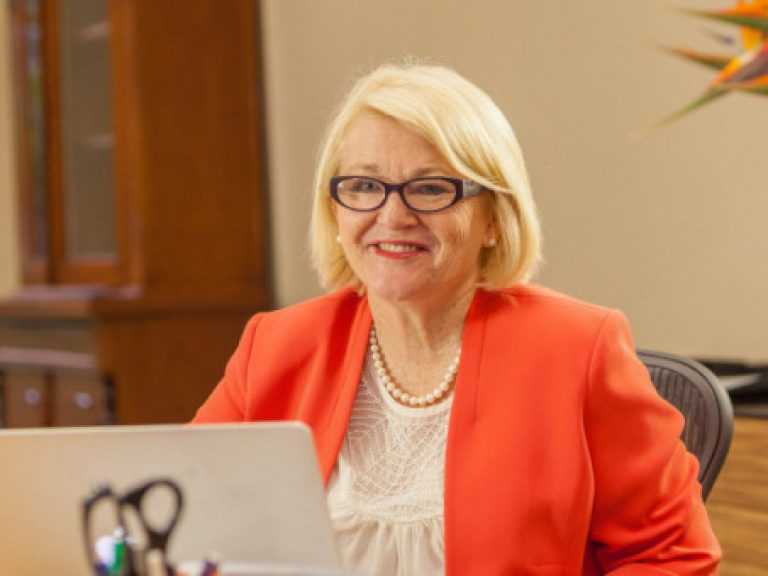March 8 2016
International Women’s Day
It was a great pleasure to be accompanied by Santa Sabina teachers and students from the Primary, Middle and Senior years at this year’s International Women’s Day Breakfast at the Australian Technology Park. The audience of 2000 were privileged to listen to inspiring messages of hope and courage about eliminating violence against women. The guest panellists included Sister Lorraine, Head of the Nazareth Centre for Rehabilitation in Bougainville, Papua New Guinea; Mr Tura Lewai, courageous counsellor and advocate, Fiji national, activist for women’s rights and the only representative from Oceania who is a member of the UN Secretary Generals Network of Male Leaders; and, Elizabeth Broderick, former Sex Discrimination Commissioner and a global advocate for women’s human rights.
For this year’s International Women’s Day, Caritas (the international aid and development organisation of the Catholic Church) celebrates the stories of women who work to help communities around the world. Caritas reminds us that women, particularly in developing countries, face systematic discrimination in education, employment, healthcare, control of assets and participation. The same is true for First Australians: not only is there a gap between the life expectancy and levels of health and education between the First Australians and the overall Australian population, but there is also a gender gap among the First Australians.
During this Season of Lent, please take the time to view the Caritas website (http://www.caritas.org.au/) and be inspired by the very positive examples of Catholic social teaching in action.
In our recent parent feedback survey, homework was one of the areas where parental opinion was very mixed in relation to the amount of homework set, as well as its benefits. We are currently reviewing our College homework guidelines, and will endeavour to provide clarity about both purpose and quantity. A recent Australian study suggests that it is a balancing act for parents when it comes to assisting with homework.
Lead researcher, Dr Judith Locke, Queensland University of Technology (QUT) Clinical Psychologist, says that some parents take the notion of assisting with their child’s homework “too far” and continue to provide high levels of assistance in the senior years when adolescents should be taking responsibility for their own homework. “The irony is”, Locke says, “a helicopter parenting style with the goal of fostering academic achievement could be undermining the development of independent and resilient performance in their children”.
The QUT study, recently published in the Journal of Psychologists and Counsellors in Schools, surveyed 866 parents from three independent and Catholic schools in Brisbane, finding that parents who endorse the over-parenting approach (also known as ‘helicopter parenting’) are overly involved in their child’s homework and expect their child’s teachers to help them more, especially in the middle and senior years. Researchers are concerned that this approach may be negatively impacting the ability of children, particularly those in high school, to “take responsibility for their homework or understand the consequences of their actions”.
So how can parents assist without becoming over-involved in their child’s homework, particularly in the senior years of school? Locke advises that parents can assist constructively with homework by “showing interest and coaching them to complete their work” but that “telling a child the right answer or taking over from them when they are completing school tasks” is unconstructive assistance. In other words, parents should make sure they are “coaching” and not “doing”.
Younger students need rules about when and where homework should be done, Locke writes, but parental assistance with homework should gradually reduce as children get older. In fact, Locke says, “daily parental involvement” in a teenager’s homework would be “developmentally inappropriate” and by Year 12, “parents should step back completely”.
Show an interest in your child’s homework, Locke tells parents, but “avoid being more interested in their schoolwork than they are” or you risk making it “your thing” and not “their thing”. Try not to offer help unless your child asks for it and avoid fixing every mistake or acting as an editor. Finally, she says, “remember a golden rule — your actions as a parent should not be primarily about making them successful now, but about building the skills that will enable them to be successful in the future without your help”.
It’s not easy being a parent, and there’s never a shortage of advice. Locke’s view is not ‘gospel’ but hopefully it provides a talking point between parents and children about the vexed question of homework.
I look forward to seeing many parents at the forthcoming IB Diploma Information Night next Wednesday, 16 March. Please register at https://www.trybooking.com/186885. Year 9 students had their first IB information session on Tuesday, 8 March and were an engaged, intelligent audience – ideal IB candidates.
The prayer for today on the Caritas Lenten App is such a beautiful message for educators and parents. Our mission as educators and parents is to always look for the beautiful in the lives of our children, even at the most challenging of times.
‘We are God’s work of art, created in Christ Jesus to live the good life as from the beginning he meant us to live it’ (Ephesians, 2:10)
Dr Maree Herrett




